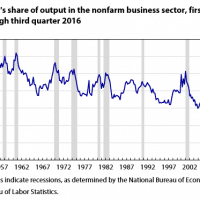-
“The Left is a bit stuck in what needs to be done today”
In September 2017, Tariq Ali visited our office in São Paulo for a long conversation. Here’s what he said about Chávez, Lula and the end of the “pink tide” in Latin America
-
The world market, ‘North-South’ relations, and neoliberalism
This article argues that Marx, too, knew more about the future than his present. Indeed, far from being merely a theorist of mid- to late-19th century capitalism, he elaborated the basic mechanisms, tendencies, counter-tendencies, contradictions, and social antagonisms that still shape capital accumulation and bourgeois societalization at the start of the 21st century.
-
Five years on: the revolutionary legacy of Hugo Chávez
Five years have passed since the death of Hugo Chávez. I had known him for almost ten years and had an enormous respect for his courage, honesty and dedication to the fight against oppression and exploitation.
-
The poison and the tomb
It takes three days on the open sea to journey from the Marshall Islands capital to Enewetak Atoll. You can’t see the atoll until you’re just miles away as it’s only feet above sea level. As you get closer, the sun fades behind clouds and the islands are shrouded in mist. Beaches are fringed not by coconut palms but Australian pines, trees praised for soaking up salt-spray and airborne radionuclides.
-
The media’s fake news about Latin America
TIM YOUNG demonstrates how Western coverage of South America is heavily biased against the continent’s progressive leaders, movements and governments.
-
Utopia and trade
Donald Trump’s decision to impose import tariffs—on solar panels and washing machines now, and perhaps on steel and aluminum down the line—has once again opened up the war concerning international trade.
-
A plea for Ahed Tamimi’s protection
The Irish artist Jim Fitzpatrick of Che Guevara black and red portrait fame has done it again: He has painted a minimalist poster of another iconic leader of her people and of a worldwide liberation movement, this time of an oppressed child who had slapped power with her bare truth. When I read his rationale for painting the new portrait I cried. The man’s pacifism, sincerity, and especially his concern for Ahed Tamimi’s life touched me.
-
Movements of millions say no to gene drives as Brazil attempts to legalize genetic extinction technology
The largest rural movements in Brazil, representing well over a million farmers, are protesting a new Brazilian regulation that would allow release of gene drives, the controversial genetic extinction technology, into Brazil’s ecosystems and farms.
-
There is no such thing as a natural disaster
“Policies aimed at aid and reconstruction became their own forms of punishment, leaving the island more indebted, unequal, dependent and polluted than it was before the hurricane hit.”
-
Is equality enough?
Race/isms Book Forum is a new series aimed at bringing established and emerging voices together in conversation around recent work that critically engages our world’s racial scripts, past and present. The structure of the forum is straightforward. We invite three to four thinkers to grapple with a book, highlighting a section of it, and then provide the author(s) an opportunity to respond however they see fit.
-
Globalization and U.S. labor’s falling share of national output
The decline in the payroll share of output is class power at work: unfortunately theirs, not ours.
-
What can Noam Chomsky’s co-author teach us in the age of Trump?
The story goes that Einstein’s theory of relativity began with a simple question: What if a person could sit on a beam of light? A single inquiry led to an entire field of study, and perhaps the world’s most famous scientific breakthrough.
The late Ed Herman’s questions were less playful. They were about war and death, lies and power politics, but they too created entire areas of study. If properly considered, they can even guide us through the perilous age in which we’re living.
-
School shooting: a U.S. epidemic
How does the rate of school shootings in the U.S. compare with countries where is more difficult to obtain guns?
-
The best books about colonialism and imperialism
The top 29 books, all appearing on 2 or more “Best Colonialism & Imperialism” book lists are ranked below by how many times they appear. The remaining 200+ titles, as well as the sources we used to make the list are in alphabetical order on the bottom of the page.
-
The long-suppressed Korean War report on U.S. use of biological weapons released at last
Written largely by the most prestigious British scientist of his day, the “Report of the International Scientific Commission for the Investigation of the Facts Concerning Bacterial Warfare in Korea and China” was effectively suppressed upon its release in 1952. Published now in text-searchable format, it includes hundreds of pages of evidence about the use of U.S. biological weapons during the Korean War, available for the first time to the general public.
-
The U.S. military will have more robots than humans by 2025
Armed with a budget of over $700 billion for the coming year – which will likely continue to grow over the course of Trump’s Pentagon-controlled presidency — the Pentagon’s dystopian vision for the future of the military is quickly becoming a question not of if but when.
-
Escalation of imperialist aggression against Venezuela
Venezuelanalysis republishes this analysis of the current conditions in Venezuela from Lucha de Clases, in which they call for deeper revolutionary measures as a way out of the current economic crisis.
-
Operation Pacific Eagle in the Philippines: Washington’s New Colonial War
Critics contend that Operation Pacific Eagle Philippines is aimed at strengthening Washington’s grip on the long-subjugated people of the Philippines, defeating a half-century leftist insurgency, and securing the country for the interests of U.S. multinational corporations.
-
Shell ruling is bad for democracy and the planet
TODAY’S ruling that oil giant Shell cannot be pursued in British courts for activities that took place in Nigeria is bad news for poor communities the world over—and for the planet.
-
Conservative-led anti-protest legislation already doubled since last year
Last March, the NLG shared an overview and analysis of the wave of anti-protest legislation sweeping state legislatures across the country. At the time, we were looking at 25 bills proposed in 19 states—all focused on limiting the right to protest or removing liability for harm caused to protesters. One year later, the number of anti-protest bills has reached 58 in 31 states with no end in sight.




















